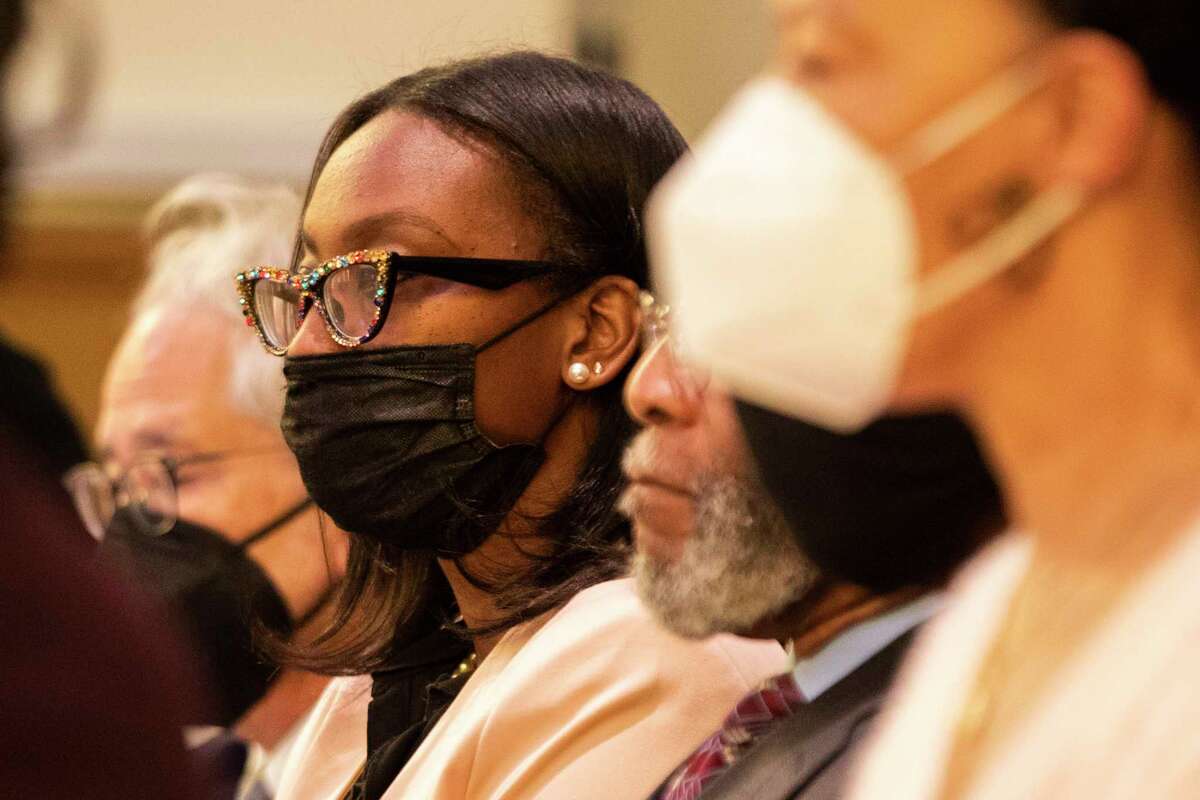Economists advising California’s task force on reparations have, at long last, released an estimate of the damages caused by the state’s history of slavery and its many vestiges of white supremacy: up to $1.2 million per Black resident over a lifetime.
The payment estimates are described as a rough, partial estimate of what it would cost the state to compensate Black people for that legacy of harm, according to a draft of the task force’s final report. But the report states those calculations are not a final recommendation on the total amount of reparations needed.
“Rather, it is an economically conservative initial assessment of what losses, at a minimum, the state of California caused or could have prevented, but did not,” the report states. “The Legislature would then have to decide how to translate loss-estimates into proposed reparations amounts.”
Still, the numbers are the first dollar estimate that the task force has released outlining the level of restitution that the panel could recommend. The panel is preparing its final report to send to the Legislature, which will include a recommendation on the amount and form of cash payments.
Task force members are expected to vote Saturday at Mills College in Oakland on whether to adopt the draft report, the capstone of its work after two years of tense meetings and in-depth research.
But the vote is likely just the start of a broader debate about how California will handle the reparations question. Whatever the task force decides, the Legislature and Newsom will have the final say. If reparations are approved, state officials would have to figure out how to pay for the program.
An economist for the reparations panel has said the plan could cost California more than $800 billion; the state has a roughly $297 billion annual budget.
But that total cost is a rough estimate, at best. The report states that not all harms were included, and the panel has not gathered enough precise data to calculate who would be eligible for compensation.
The task force previously voted to limit compensation to those who can directly trace their lineage to chattel slavery in the United States or those whose ancestors immigrated before 1900, excluding Black people who might have immigrated later. Other eligibility criteria, such as how long someone must be a California resident, has not been determined.
A spokesperson for the task force said the panel is working on releasing a statement about the economists’ estimate, though it was not ready Monday afternoon. Task force Chair Kamilah Moore said she wasn’t available to comment on Monday.
The proposal, if forwarded to the Legislature, would likely draw fierce opposition from some Republican lawmakers, as well as some moderate Democrats who’ve expressed skepticism about cash reparations.
Lawmakers and Newsom created the task force in 2020, and directed its members to study the history of slavery in California and its enduring inequities for Black people. While the Golden State was admitted to the Union as a “free state” in 1850, historians say slavery continued to be openly practiced for years by white Southerners, who brought enslaved people to the state and forced them to work in gold mines and on plantations.
The nine-member task force began meeting in June 2021, and has spent the better part of the last two years studying the way that California’s legacy of slavery and racial discrimination has harmed Black residents. It has until July 1 to deliver a final report, and a recommendation on cash payments, to legislators.
Its draft report outlines estimates for restitution to repair harm in three areas:
Mass incarceration and over-policing in Black communities: $115,260 per person in 2020 dollars, or $2,352 for each year of residency in California from 1971 (the first year of the “War on Drugs”) to 2020
Discrimination in housing, such as redlining that denied home loans to Black families late into the 20th century: $148,099 per person, or $3,366 for each year between 1933 and 1977, when redlining occurred
Health harms, including unequal access to health care, greater exposure to environmental pollution and discrimination from medical workers: $13,619 per person for each year spent in California, or $966,921 with an average life expectancy of 71 years for Black people in the state
All told, a Black person who’s lived the state for their whole life, until at least age 71, could theoretically receive more than $1.2 million in lifetime restitution, though it’s unclear how the state would pay out potential compensation.
The task force’s draft report states that it wasn’t able to calculate harms in some other areas, such as the unjust taking of property through eminent domain, due to a lack of data.
Its report suggests the Legislature should make a “substantial initial down payment on reparations” that could be added to as new evidence becomes available. The task force’s draft report also includes a recommendation that payments to elderly Black people be prioritized.
“Delay of reparations is in itself an injustice that causes more suffering and may ultimately deny justice, especially to the elderly among the harmed,” the report states.
Reach Dustin Gardiner: dustin.gardiner@sfchronicle.com








